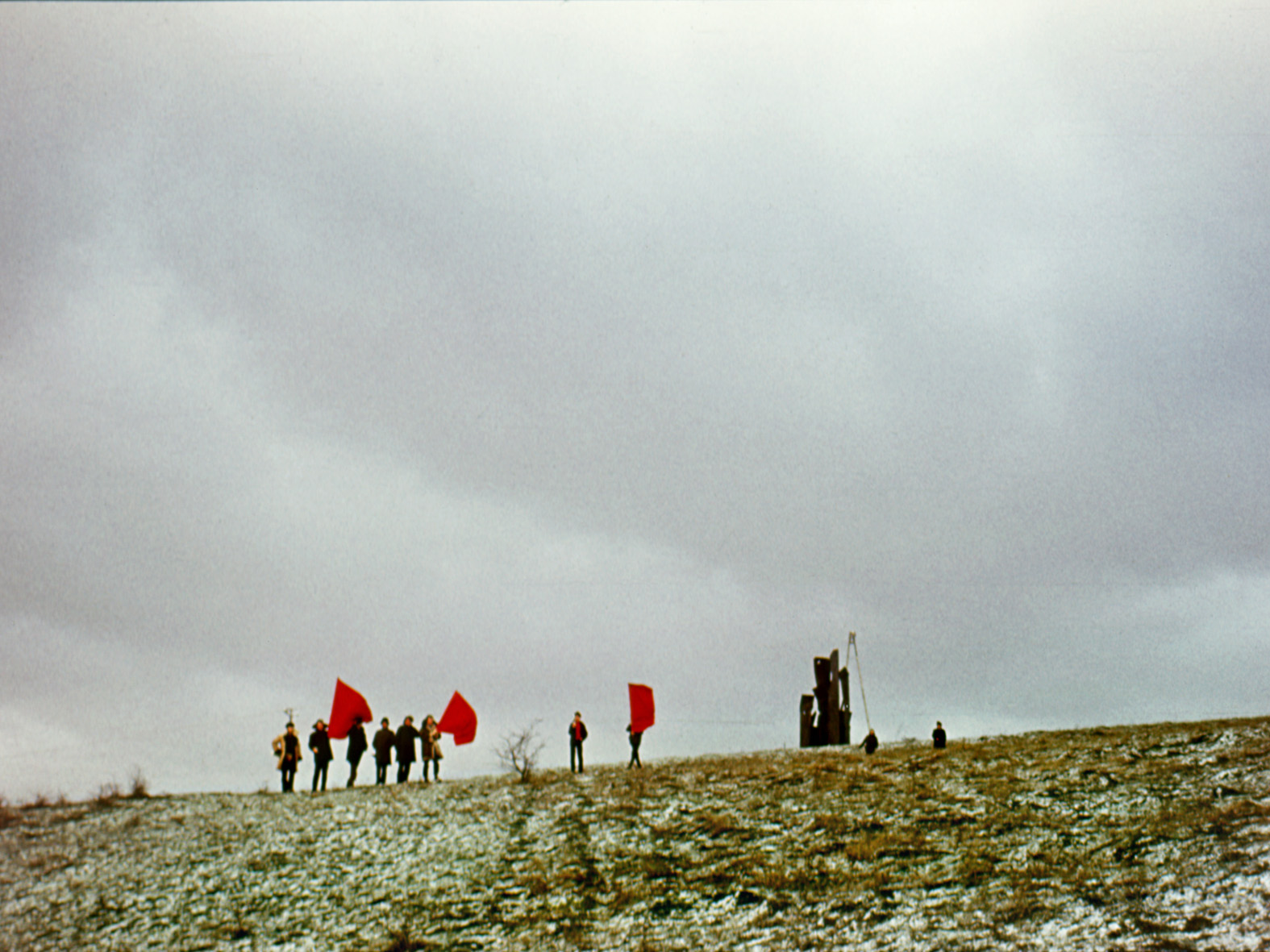Axel Wieder (DE/SE): RE-VISITING OPEN FORM
Time: Thursday 8 October 2015, 5 PM
Venue: Konstfack, Mandelgren (next to Svarta havet)
LM Ericssons väg 14, Stockholm. T-bana: Telefonplan
[Video documentation of lecture below]

Students in Oskar Hansen’s studio with the large number exercise, mid-1960s. Courtesy of Muzeum Akademii Sztuk Pięknych w Warszawie.
The eighth lecture within the 2015 Organising Discourse Open Lectures series will focus on the theory of Open Form, introduced by the Polish visionary architect, artist and urban theorist Oskar Hansen, and its role for experimental pedagogy and new relationships of users and architecture.
Re-visiting Open Form
Formulated initially at the XI. CIAM congress in Otterlo 1959, the theory of Open Form was a strong conceptual basis for all fields of Hansen’s activities. A former assistant of Pierre Jeanneret, a student of Fernard Léger and an active member of Team 10, he called for opening architecture for the activities of its users and turn it into a “perceptive background” exposing the events of everyday life. Oriented at participation, Open Form promoted the understanding of architecture as a tool that could be given to the users and easily adapted to their changing needs. Open Form was further developed by Hansen and a group of artists who studied in his studio at the Academy of Fine Art in Warsaw, among them Zofia Kulik, Przemysław Kwiek and Wiktor Gutt. His work became an important reference point for visual artists who treated their practice as a form of social experimentation.
The presentation will discuss Hansen’s work and his legacy for contemporary discussions of pedagogies, space and participation. Some of the most remarkable outputs of Hansen and the artists he collaborated with include games and educational tools in which the roles of participants are actively negotiated. The documentation and discussion of processes was treated as a feature for analysis and knowledge production. It seems an interesting task to re-visit experiments with Open Form as a specific approach to participation and to deal with hierarchies in the production of space and knowledge. In a second step, we may ask about important areas for a discussion about access today, what are power relations of concern? What are areas that regulate access or represent hierarchies in a way that makes negotiation urgent?
Axel Wieder is a curator and writer living in Stockholm. He has been director of Index – the Swedish Contemporary Art Foundation since 2014, and was head of program and curator of exhibitions at Arnolfini Center of Contemporary Arts in Bristol. His work has frequently focused on the history and theory of exhibitions, architecture and social space, and issues of political representation. Recent exhibitions include “The Promise” at Arnolfini (2014), involving works of artists and offsite projects alongside urban planning and architectural models, and solo exhibitions with Joëlle Tuerlinckx, Willem de Rooij and Ian Hamilton Finlay. He also initiated exhibition and performance series on Maryanne Amacher, shown with DAAD, Berlin in 2012 and in 2014 at the Bonner Kunstverein. As artistic director of Künstlerhaus Stuttgart from 2007 to 2010, he developed an interdisciplinary program aimed at forging closer links between theoretical formats and exhibition presentations, repositioning the institution both regionally and internationally. Since 1990 he has taken part in numerous exhibitions in collaboration with Jesko Fezer, including the 3rd Berlin Biennale in 2004 and the 9th International Istanbul Biennial in 2005. In 1999, together with Jesko Fezer and Katja Reichard, he founded the bookstore Pro qm in Berlin, which is also a venue for experimental events in the field of art and urbanism. Among his many other projects, Wieder curated the exhibition “Now and Ten Years Ago” at KW Institute for Contemporary Art in Berlin. He has also held lecturing posts at various universities and art academies, including the Bauhaus-Universität Weimar and the Zürcher Hochschule der Künste.
Download as PDF: Organising Discourse lecture 8
Video documentation of lecture 8 October 2015, Konstfack
